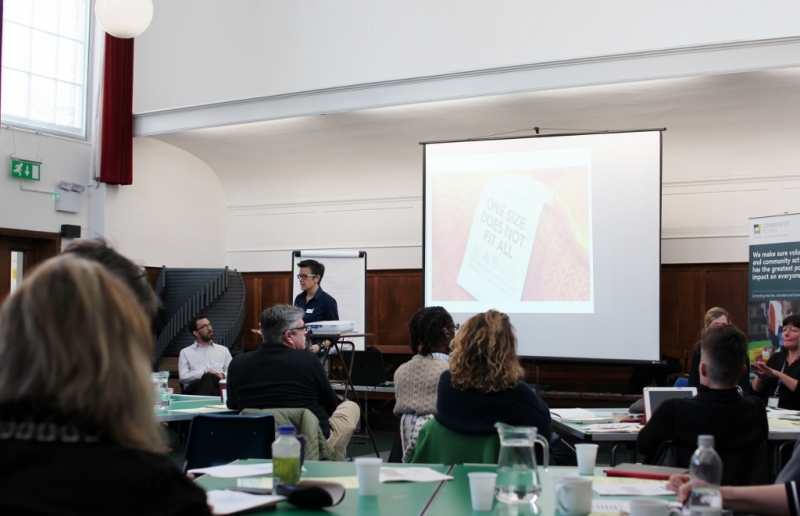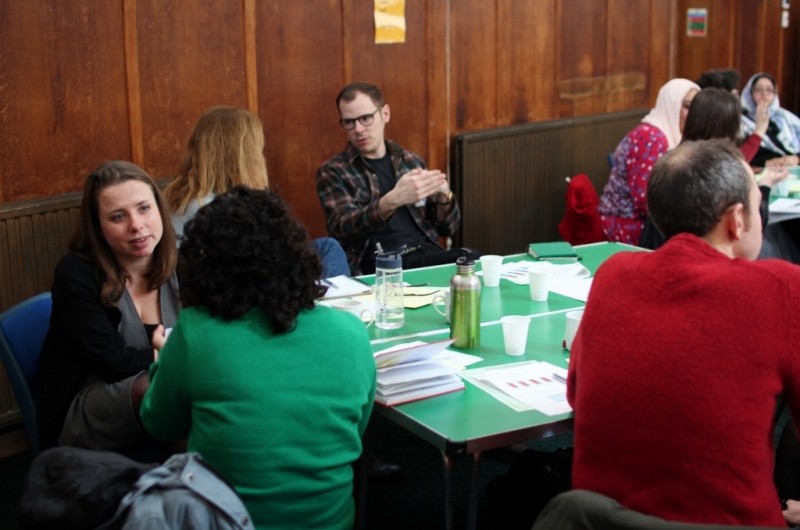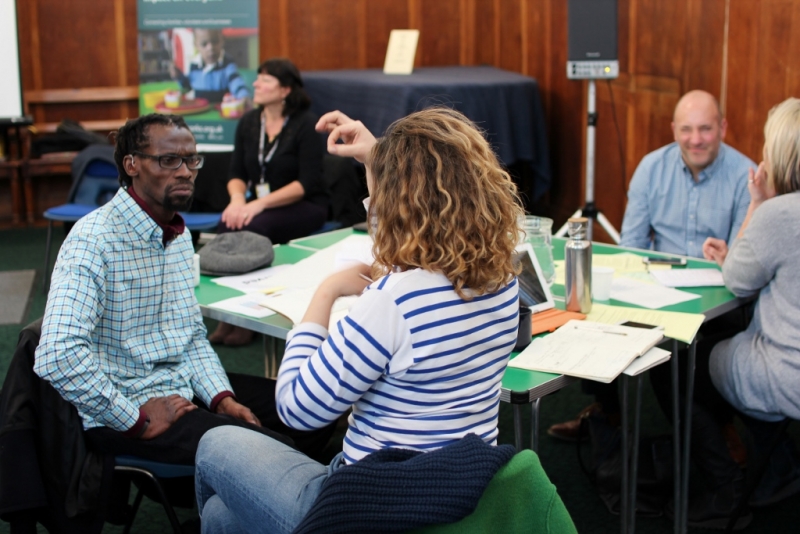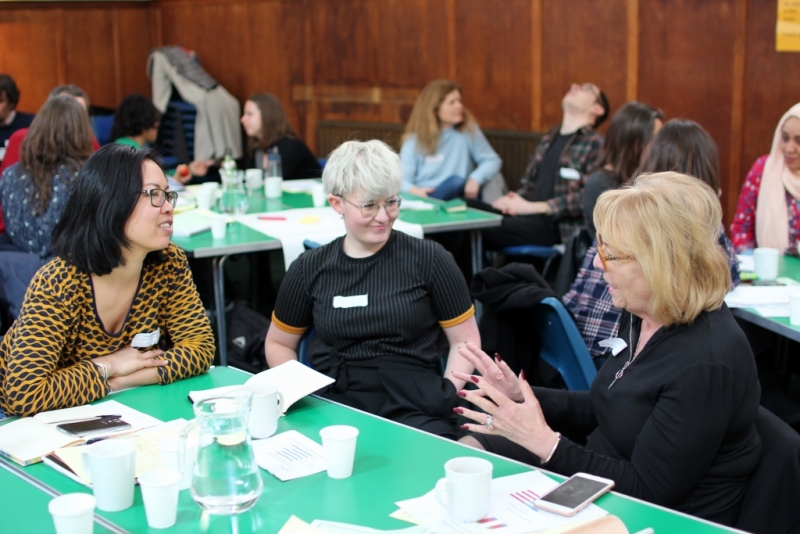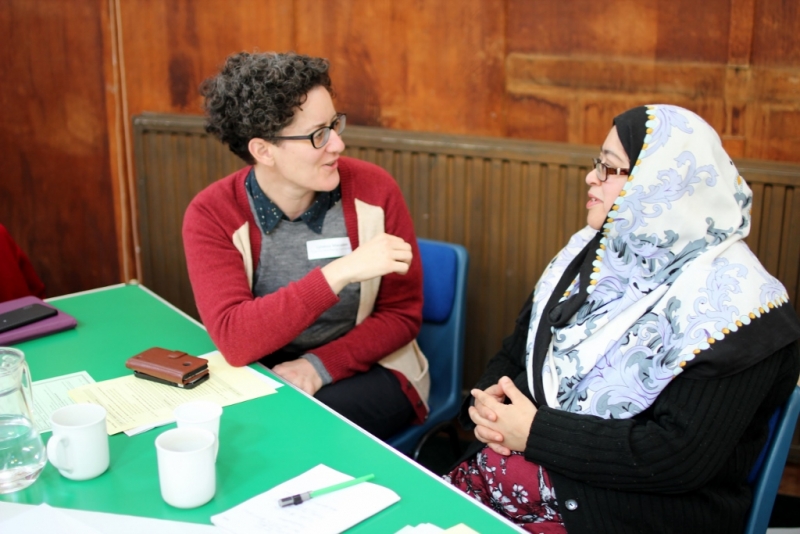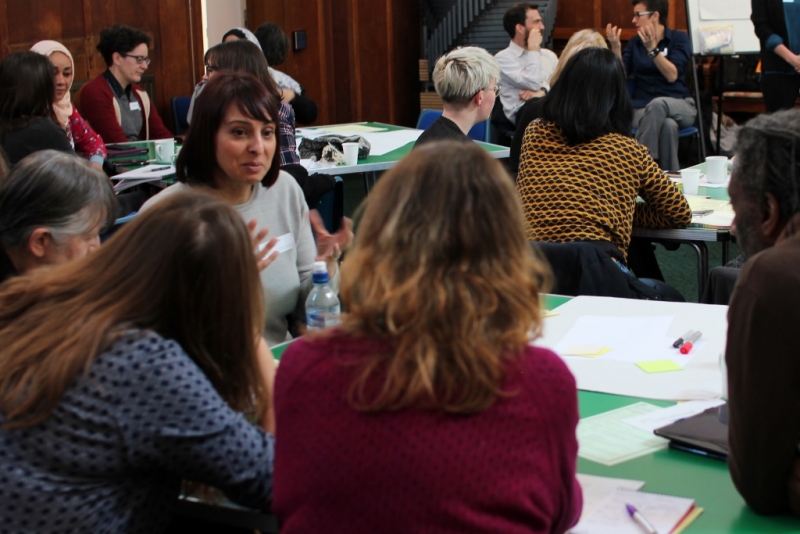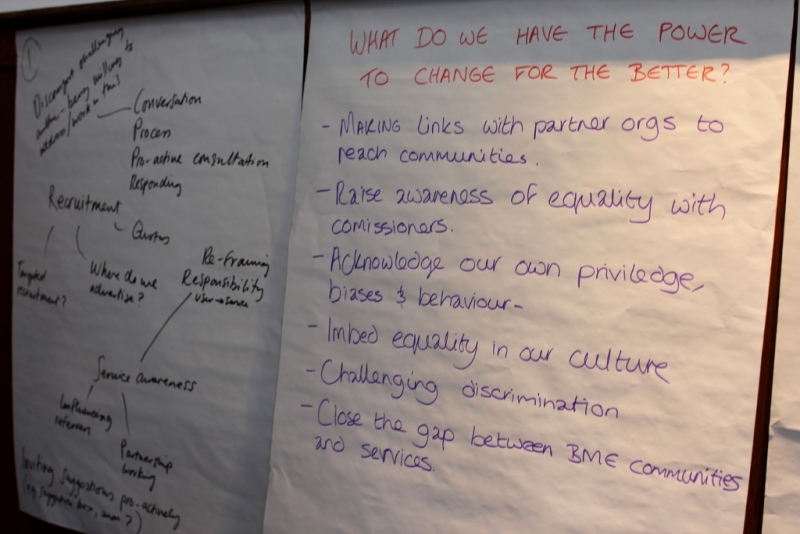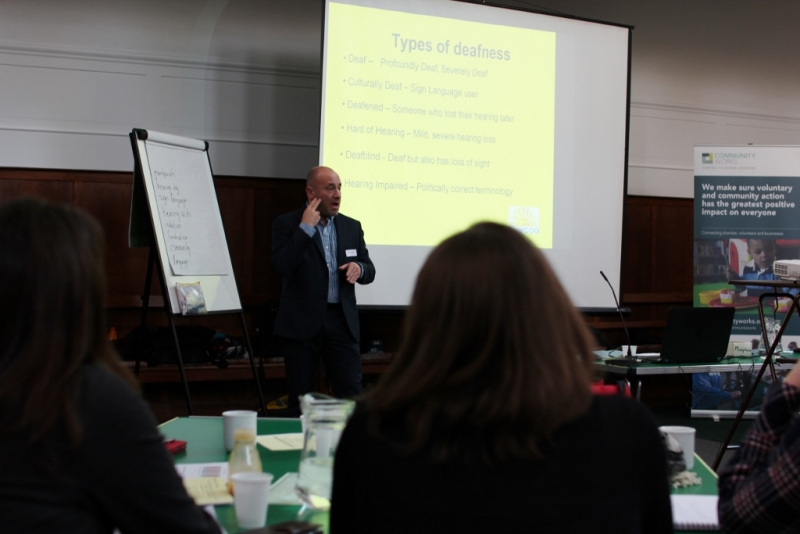On Thursday 22nd February, TDC hosted a number of workshops at the Community Works 2018 Equality Symposium “Thriving, not (just) surviving” – which this year focused on hardships as experienced by members of the local BAME & D/deaf communities.
TDC Community Development Worker Terry Adams arranged for two women from BAME backgrounds to attend the symposium and talk to service providers from Brighton, Hove and further afield about their personal experiences.
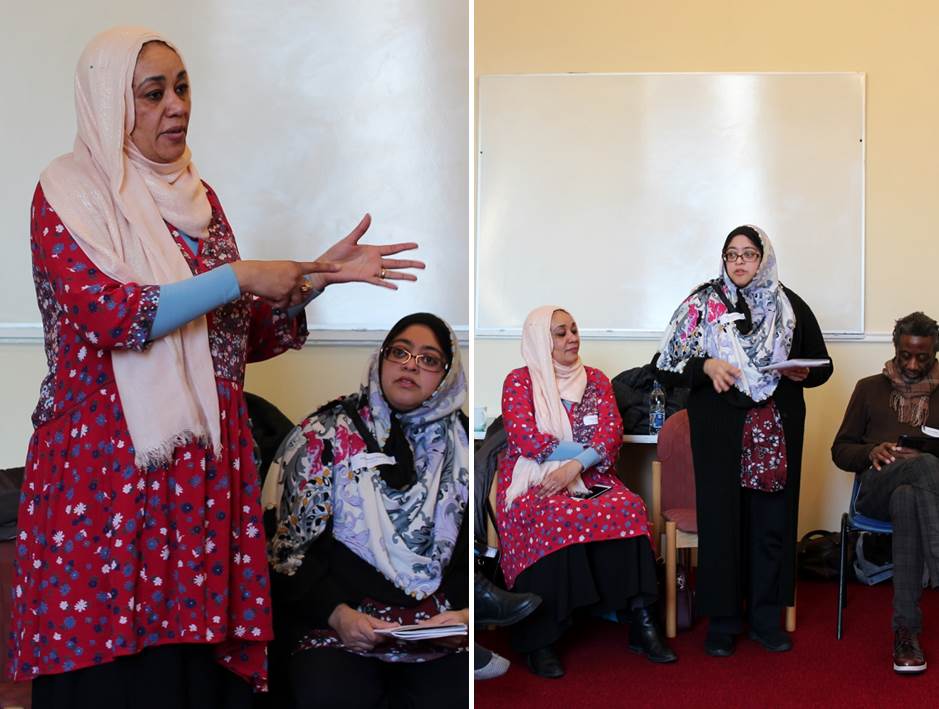
Maha, originally from Sudan and a mother of 5 now living in East Brighton, spoke of the challenges in raising a family between two cultures, the racism she has experienced since she moved to Brighton, and how she motivated herself to learn English and study at the Open University. Following completion of an MA in Child Studies, Maha says “I now understand how to support my children, how to build communication and trust. And all this information helped me to settle in to life in the UK”. She told workshop participants about the coffee mornings she has set up at Moulsecoomb School where local people can regularly get together to discuss and share information on subjects as diverse as cyberbullying, english courses, housing and education. One of her proudest achievements has been to link up parents with AMAZE, a charity which supports the families of disabled children. Maha enjoyed attending the symposium, and the chance to share her experience with others. She said “Being involved today has made me feel even more a part of the community”.
Mish was born and brought up in Brighton, and in her words “couldn’t live anywhere else”. She talked about the people that make up our city “If you look down my road, there’s an interesting mix of ethnicities.” And again, the important role she plays as a parent “As a mum of 2 girls, both in high school, making sure they accept and respect both cultures can sometimes be a challenge”.
Mish told attendees about the difficulties in finding work that fits in with school hours and how intimidating the job centre can be. On racism, she says “In Brighton, people are very respectful of each other. We do get the odd comment here and there but when it happened to the kids in school it was handled very well”. Mish is a member of the local Bangladeshi Women’s Group, which was initially very reliant on support from TDC but has now grown in independence with the help of people like Mish. She arranges an all-women swimming group which is subsidised by grants to make sure those on lower incomes can take part, and managed to liaise with the pool staff to find swimwear that is acceptable to both the women in the group and the swimming pool. Following in the footsteps of her father, Mish is also a member of the local Racial Harassment Forum, which carries out surveys to find out what local people need and also shares information, for example highlighting that the Community Safety Team can help with incidents, meaning it is not always necessary to go to the police. Mish shared a wealth of information from her own personal experience… On answering her mother’s query on why she should fill in those diversity questionnaires “if we can’t inform the system of our needs, they can’t do anything about them” and how it’s essential for the care system to diversify “There’s a huge need for carers from BAME backgrounds, with different language skills. It’s a trust issue for many elderly people”.
Ratna Jan Bibi, anouther of our Community Development team, whose work focuses specifically on the well-being of people from Ethnic Minority groups was also at the symposium. She spoke briefly to attendees of how she interacts with the groups Maha and Mish were talking about “Our role is to listen to the individuals and build relationships, then do whatever we can to help. It’s actually Maha and Mish doing all the work, and I support them wherever I can”.
The Symposium also gave participants a chance to understand the challenges that local D/deaf people face, with interpreter and trainer Marcel Hirschman delivering a workshop on Deaf awareness. He gave a presentation which was jam-packed with facts and plenty of anecdotal evidence of the struggles that D/deaf people experience on a daily basis.
Throughout the day, attendees were challenged to think about their own experiences of prejudice and discuss ideas on how their own services can work to make life easier for people experiencing hardship.
Many thanks to Community Works for organising such an insightful day and for inviting TDC to be a part of it.

